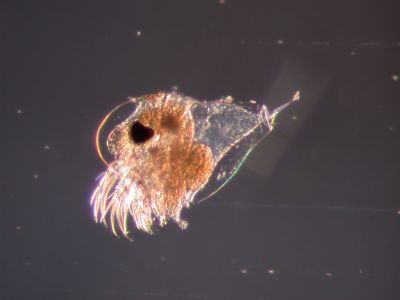New look at plankton and ocean biogeochemistry

Evadne spinifera
By Mª Carmen Mingorance Rodríguez (Own work) [Public domain], via Wikimedia Commons
Marine plankton influences the movement of carbon from the atmosphere to the ocean. This biogeochemical process has traditionally been modelled on the supply and consumption of essential nutrients, but an EU-funded project took a new approach.
Conventional models show marine plankton belonging to one of two groups: tiny plants known as phytoplankton or the zooplankton that feed on them. However, this approach is challenged by the existence of mixotrophic organisms, which can use different sources of energy and carbon. For example, the majority of photosynthesising plankton also graze on bacteria.
The 'Biogeochemical impacts of mixotrophy and ecological stoichiometry' (BIOMES) project studied the ecological mechanisms that influence mixotrophy. Observations and food web models were used to investigate how interactions between trophic levels in the food chain affect large-scale ecology and biogeochemical cycling. The trophic level of an organism can be described as the position it occupies in the food chain.
A computer model was created to show an accurate representation of mixotrophy based on a continuous spectrum from phytoplankton to zooplankton. It was developed using a 1D water column model before being extended to a full global ocean model. The model will help to clarify the mechanisms that allow mixotrophs to compete in different environments and how their success affects the cycling of elements.
Furthermore, changes in plankton elemental ratios were investigated across large areas, and a model was developed to understand competition between marine nitrogen fixers and other phytoplankton. This elemental variability is an important component of the global carbon cycle. Therefore, the model will help to explain the links between physiology, ecology and biogeochemistry.
Results showed that mixotrophs can take advantage of resource pools that were previously thought of as unavailable to phytoplankton or zooplankton. This mechanism could have important implications, because the model results suggest mixotrophy enables much more efficient transfer of biomass to higher levels in the food chain.
The work conducted by BIOMES has provided scientists with new insights into how marine plankton affects biogeochemical cycles in the ocean. It will also help to increase understanding of the global carbon cycle.
published: 2015-05-14